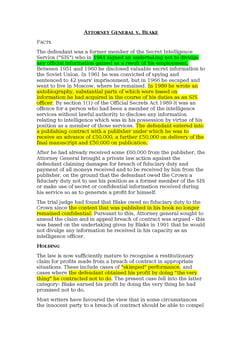Raffles v Wichelhaus [1864] 2 H&C 906
Judgement for the case Raffles v Wichelhaus
Table Of Contents
There was confusion since a contract stipulated that goods should be carried in the ship Peerless and there were two ships by that name, one of which would arrive later.
Defendant asserted that he had intended the ship that arrived earlier and therefore had not paid, and Plaintiff sued him for breach of contract.
-
CA, without giving its reasons, denied Plaintiff’s claim and upheld Defendant’s right not to pay.
CW: Traditional explanation is that there was no consensus ad idem to the thing. This is wrong because contract law doesn’t require a subjective meeting of the minds.
On an objective understanding of consensus ad idem, it seems that however a reasonable person might try to interpret it, the statement suffered latent ambiguity: “objectivity simply ran out”.
For Further Study on Raffles v Wichelhaus

Contract law notes fully updated for recent exams at Oxford and Cambrid...

These are detailed case summaries (excerpts from cases - not paraphrase...
Need instant answers? Our AI exam tutor is here to help.
Ask questions 🙋 Get answers 📔 It's simple 👁️👄👁️
Our AI is educated by the highest scoring students across all subjects and schools. Join hundreds of your peers today.
Get StartedSimilar Cases
Related Product Samples
These product samples contain the same concepts we cover in this case.

 Since 2010, Oxbridge Notes has been a trusted education marketplace, supplying high-quality materials from top achievers at universities like Oxford, Cambridge, LSE, Harvard, and Yale.
Since 2010, Oxbridge Notes has been a trusted education marketplace, supplying high-quality materials from top achievers at universities like Oxford, Cambridge, LSE, Harvard, and Yale.